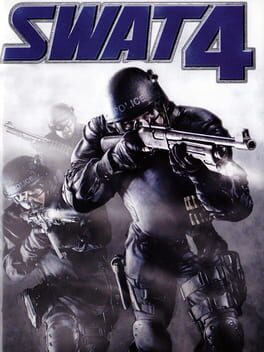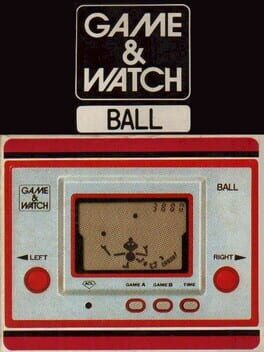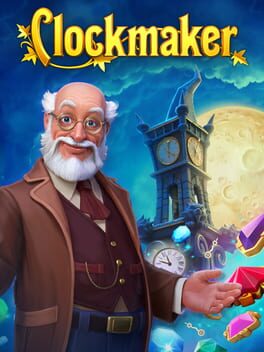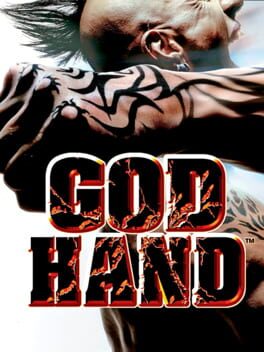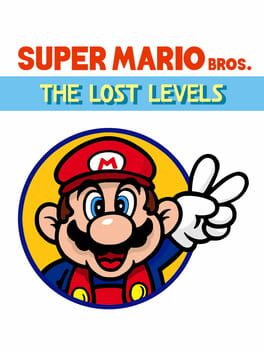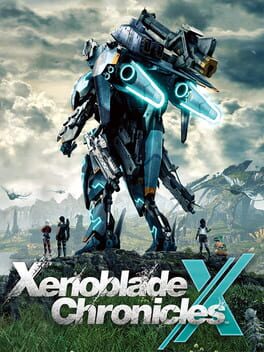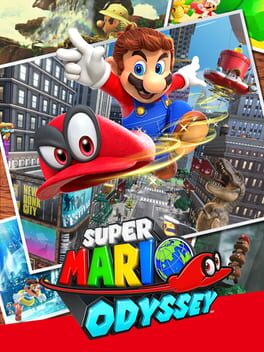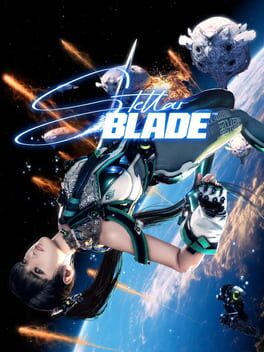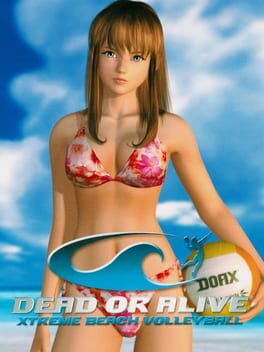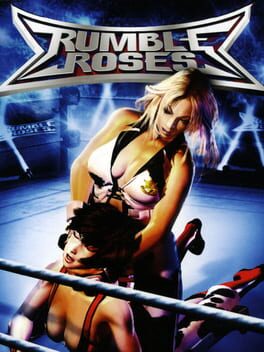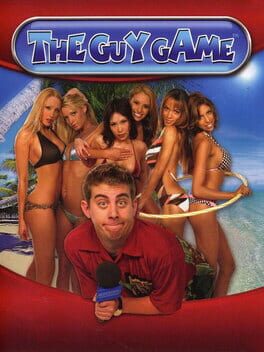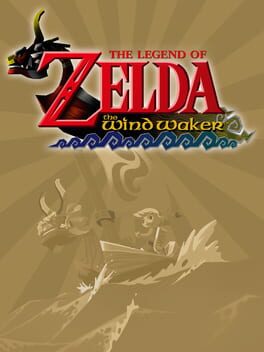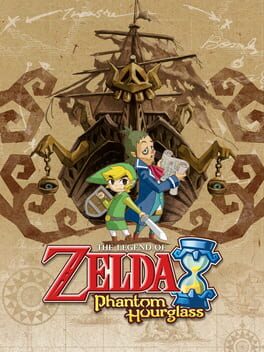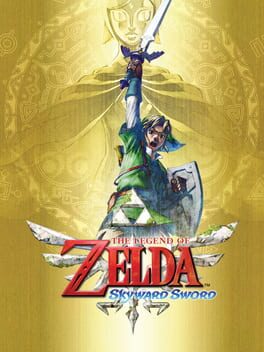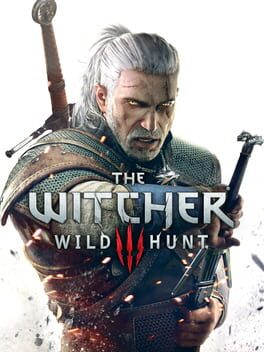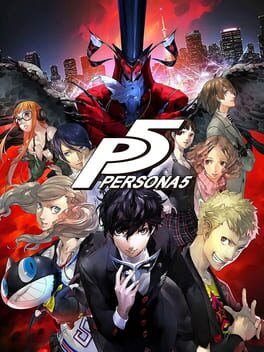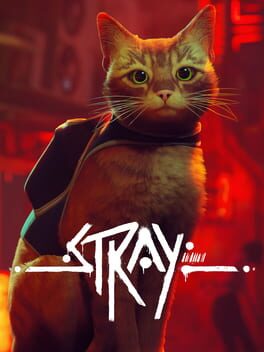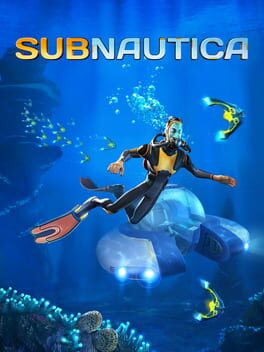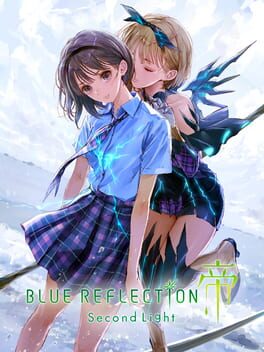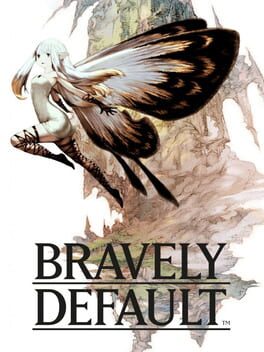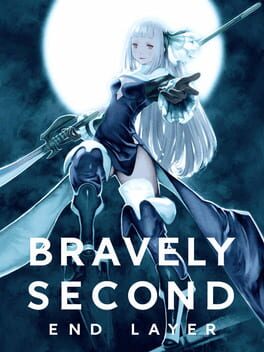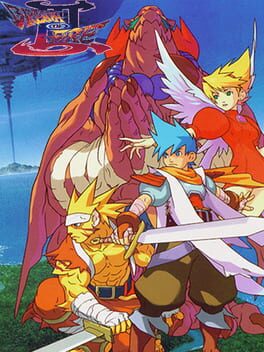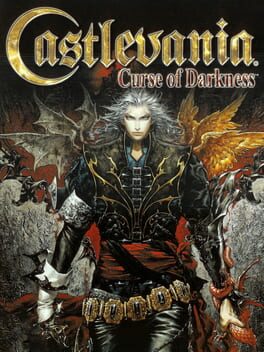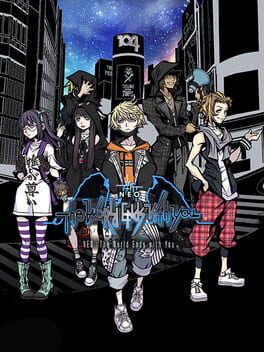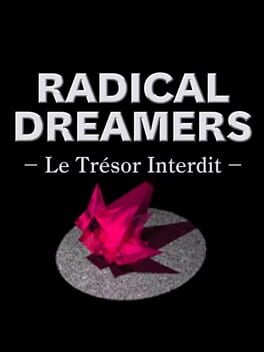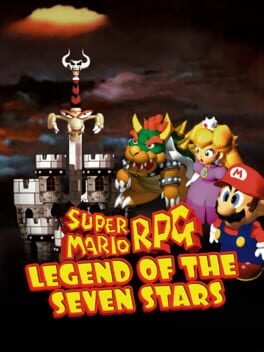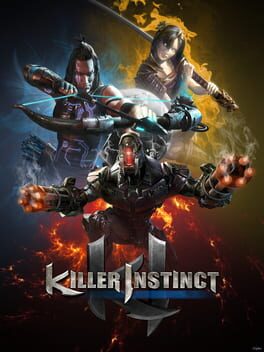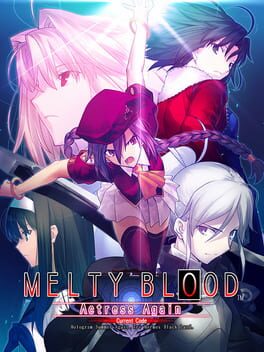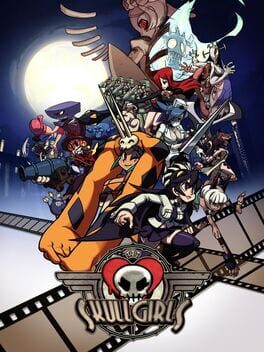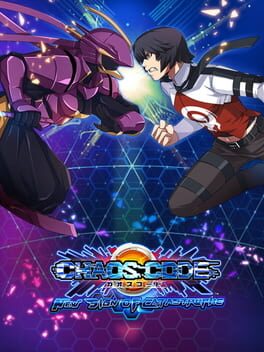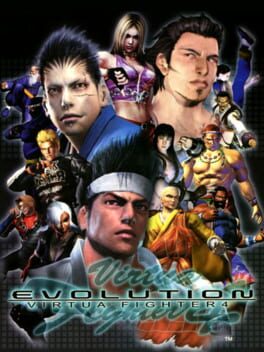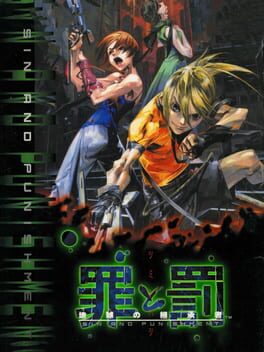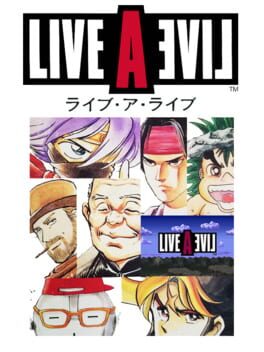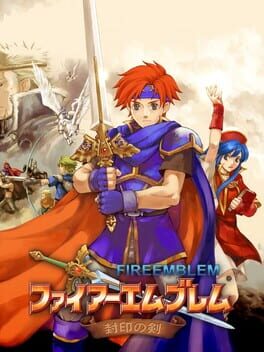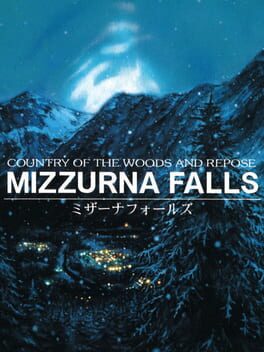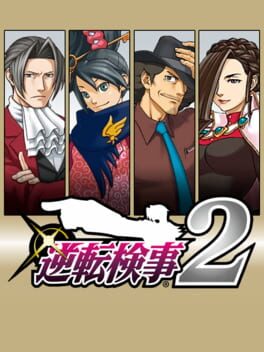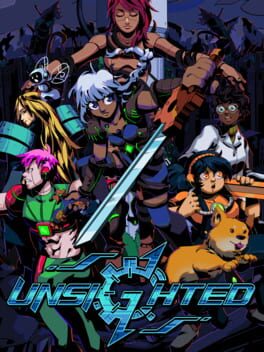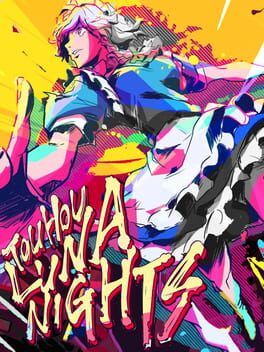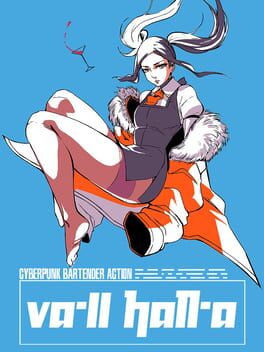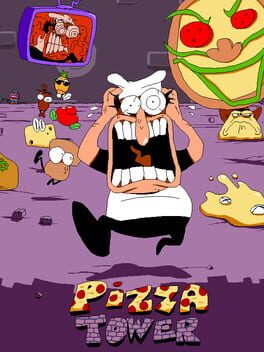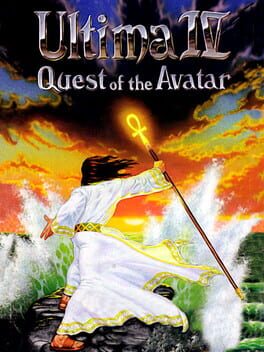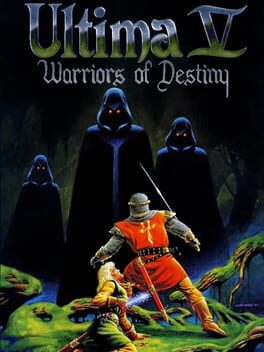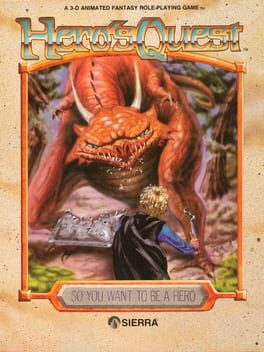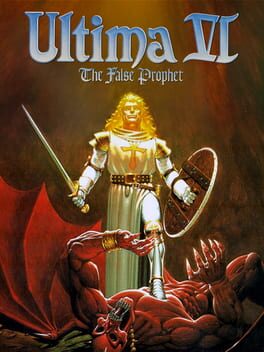406 reviews liked by RaftAnts
SWAT 4
2005
So above and beyond what a tactical police shooter would reasonably need to have in so many different areas that you wonder how it even came to be. SWAT 4 may sit at the top of the very narrow category of most anxiety-inducing simultaneous first and second person shooters with needlessly detailed environmental storytelling, but it’s led me to a much broader, more general thought – for how saturated and longstanding a genre it is, how much has what you can do with a shooter really been explored?
A few things about it bring this question to mind, but the main one for me’s its morale system. Each enemy and civilian has a different level of morale which affects how likely they are to surrender, pretend to surrender before pulling some kind of stunt or be nakedly noncompliant whenever you and your squad shout at them. By themselves, these kinds of reactions go a long way toward making it so that the player can never guess what’ll happen when they open any given door, but what takes this system to the next level is the sheer amount of factors which can affect it; whether they’re a group of trained gunman or a single inexperienced gangbanger, whether they’ve been stunned with some form of nonlethal attack, whether there are any hostages for them to take advantage of or hostiles to point you in the direction of, how many of you there are versus how many of them, how much damage they’ve sustained to each of their limbs and, my favourite, surprising them with warning shots. I’d never realised until playing this that hitting or missing a target in a shooter doesn’t necessarily have to be a dichotomy between success or failure – here, the latter can also be a tool for intimidation when Officer Backloggd User’s vocal chords aren’t cutting it alone. Firing a shotgun near someone’s feet to twist what’d normally be a failure state into something potentially advantageous extends past the fantasy of feeling like a Michael Mann character and gets the mind wondering about the uncapitalised potential of not just this genre, but others too. Why, for instance, do RPGs still often limit us to dialogue boxes labelled (Intimidate) or whatever when a far more organic implementation of that sort of interaction’s right here?
This sort of unpredictability which causes each attempt at the same level to play out differently every time’s a specialty of SWAT 4. Choosing different entry points coupled with NPCs’ semi-randomised spawns contribute a fair amount to this too, especially when specific characters are part of the mission’s objectives in some way, though the fact that the aforementioned limb-based damage system also applies to you and your squad plays a large role as well. While the extent to which this game wants you to take it slow’s immediately felt in the pairing of its relatively low movement speed and how harshly guns’ crosshairs widen, it becomes even more apparent when you’ve got an injured leg, head or arm. Suddenly, you find yourself even more hesitant to attempt to follow a fleeing suspect through a series of doors they’re shutting behind them, and whatever strategies you had in mind when selecting your long-range equipment have been scuppered by your diminished accuracy. If it sounds restrictive, don’t worry, because it can open up about as many avenues of play as it can close; one example I particularly enjoyed involved clearing a mission which heavily encourages you to use nonlethal weaponry by instead aiming for unarmoured limbs with 9mm FMJ rounds, since it’s easier to skirt around score penalties by incapacitating hostiles rather than killing them.
Although there’s an easy comparison to be made in terms of the replayability of individual encounters with its contemporary F.E.A.R., down to how heavily this stems from the AI’s dynamic behaviours, there’s another, less expected parallel in how thickly it lays on all things atmospheric. Breaching a two-storey room filled with explosive canisters and over half a dozen heavily armed death cultists is nerve-wracking enough, then it decides to hit you with a scene like this just moments after. It’d be easy to think of moments like this or a much earlier, loose equivalent of VTMB’s Ocean House Hotel as borderline genre pivots, but they’re more tonally synergistic than they seem at first. This is a game in which you die in two clean hits regardless of difficulty, so much as taking your eye off a bodycam for a second can prove to be fatal and, as noted above, you can never fully anticipate what’s going to greet you on the other side of a door, so it makes sense to ensure that the player can never anticipate what’s up next on a conceptual level in addition to a mechanical one, as well as to occasionally dial up the horror and exacerbate the uneasiness that average Joes with Uzis are already so good at instilling.
Irrational’s prior experience with horror isn’t the only instance of their ancestry rearing its head in the least likely of places, either. If you weren’t aware that they originated by splintering off from Looking Glass, having played one of the first two Thief games prior to this will probably clue you in, because SWAT 4’s incomplete, often hand-drawn, hastily annotated maps are straight out of those. You can only ever make a rough mental approximation of the layout of wherever you’re about to raid because of it, and chances are it’ll have geographical changes, potential hazards or other objectives they can’t possibly account for. It’s a small but brilliant touch which makes every eruption of overlapping GET DOWNs and WHERE’S MY GODDAMN LAWYERs mixed with gunfire all the more hectic as you’re inevitably forced to piece together your own whereabouts in the thick of it, usually while juggling your own perspective with that of a squadmate’s bodycam or a sniper feed to boot.
Despite how spur-of-the-moment all of this makes it sound and how many different ingredients are packed into it, up to and including some of Eric Brosius’ funkiest work, SWAT 4’s really a game of exceptionally singular focus; as the objective menu puts it, restoring order to chaos. It’s felt even in the size of its levels, which are just right for how many moving parts they each have and the number of ways in which those parts can be manipulated – you can charge me on account of lying if I told you that it’s always fun hunting down the last remaining suspect regardless, but it is always intense, and in general the most minor of blemishes on what’s otherwise one of many attestations to the fact that we’d probably be grand if games had just stopped progressing past what they could do in 2005.
Keep your cool, fiddle with your squadmates’ equipment and make regular use of the command menu to breach whatever obstacles are between you and giving this game a try, boss.
A few things about it bring this question to mind, but the main one for me’s its morale system. Each enemy and civilian has a different level of morale which affects how likely they are to surrender, pretend to surrender before pulling some kind of stunt or be nakedly noncompliant whenever you and your squad shout at them. By themselves, these kinds of reactions go a long way toward making it so that the player can never guess what’ll happen when they open any given door, but what takes this system to the next level is the sheer amount of factors which can affect it; whether they’re a group of trained gunman or a single inexperienced gangbanger, whether they’ve been stunned with some form of nonlethal attack, whether there are any hostages for them to take advantage of or hostiles to point you in the direction of, how many of you there are versus how many of them, how much damage they’ve sustained to each of their limbs and, my favourite, surprising them with warning shots. I’d never realised until playing this that hitting or missing a target in a shooter doesn’t necessarily have to be a dichotomy between success or failure – here, the latter can also be a tool for intimidation when Officer Backloggd User’s vocal chords aren’t cutting it alone. Firing a shotgun near someone’s feet to twist what’d normally be a failure state into something potentially advantageous extends past the fantasy of feeling like a Michael Mann character and gets the mind wondering about the uncapitalised potential of not just this genre, but others too. Why, for instance, do RPGs still often limit us to dialogue boxes labelled (Intimidate) or whatever when a far more organic implementation of that sort of interaction’s right here?
This sort of unpredictability which causes each attempt at the same level to play out differently every time’s a specialty of SWAT 4. Choosing different entry points coupled with NPCs’ semi-randomised spawns contribute a fair amount to this too, especially when specific characters are part of the mission’s objectives in some way, though the fact that the aforementioned limb-based damage system also applies to you and your squad plays a large role as well. While the extent to which this game wants you to take it slow’s immediately felt in the pairing of its relatively low movement speed and how harshly guns’ crosshairs widen, it becomes even more apparent when you’ve got an injured leg, head or arm. Suddenly, you find yourself even more hesitant to attempt to follow a fleeing suspect through a series of doors they’re shutting behind them, and whatever strategies you had in mind when selecting your long-range equipment have been scuppered by your diminished accuracy. If it sounds restrictive, don’t worry, because it can open up about as many avenues of play as it can close; one example I particularly enjoyed involved clearing a mission which heavily encourages you to use nonlethal weaponry by instead aiming for unarmoured limbs with 9mm FMJ rounds, since it’s easier to skirt around score penalties by incapacitating hostiles rather than killing them.
Although there’s an easy comparison to be made in terms of the replayability of individual encounters with its contemporary F.E.A.R., down to how heavily this stems from the AI’s dynamic behaviours, there’s another, less expected parallel in how thickly it lays on all things atmospheric. Breaching a two-storey room filled with explosive canisters and over half a dozen heavily armed death cultists is nerve-wracking enough, then it decides to hit you with a scene like this just moments after. It’d be easy to think of moments like this or a much earlier, loose equivalent of VTMB’s Ocean House Hotel as borderline genre pivots, but they’re more tonally synergistic than they seem at first. This is a game in which you die in two clean hits regardless of difficulty, so much as taking your eye off a bodycam for a second can prove to be fatal and, as noted above, you can never fully anticipate what’s going to greet you on the other side of a door, so it makes sense to ensure that the player can never anticipate what’s up next on a conceptual level in addition to a mechanical one, as well as to occasionally dial up the horror and exacerbate the uneasiness that average Joes with Uzis are already so good at instilling.
Irrational’s prior experience with horror isn’t the only instance of their ancestry rearing its head in the least likely of places, either. If you weren’t aware that they originated by splintering off from Looking Glass, having played one of the first two Thief games prior to this will probably clue you in, because SWAT 4’s incomplete, often hand-drawn, hastily annotated maps are straight out of those. You can only ever make a rough mental approximation of the layout of wherever you’re about to raid because of it, and chances are it’ll have geographical changes, potential hazards or other objectives they can’t possibly account for. It’s a small but brilliant touch which makes every eruption of overlapping GET DOWNs and WHERE’S MY GODDAMN LAWYERs mixed with gunfire all the more hectic as you’re inevitably forced to piece together your own whereabouts in the thick of it, usually while juggling your own perspective with that of a squadmate’s bodycam or a sniper feed to boot.
Despite how spur-of-the-moment all of this makes it sound and how many different ingredients are packed into it, up to and including some of Eric Brosius’ funkiest work, SWAT 4’s really a game of exceptionally singular focus; as the objective menu puts it, restoring order to chaos. It’s felt even in the size of its levels, which are just right for how many moving parts they each have and the number of ways in which those parts can be manipulated – you can charge me on account of lying if I told you that it’s always fun hunting down the last remaining suspect regardless, but it is always intense, and in general the most minor of blemishes on what’s otherwise one of many attestations to the fact that we’d probably be grand if games had just stopped progressing past what they could do in 2005.
Keep your cool, fiddle with your squadmates’ equipment and make regular use of the command menu to breach whatever obstacles are between you and giving this game a try, boss.
That sure was... a video game I guess?
Ocarina of Time has long been lauded as one of the greatest games of all time, and in some aspects it's not hard to see how much influence it would have in the years going forward. It planted the seeds for multiple new genres of the medium, from the Character Action Game to Open World. It's still visually impressive even today, and it has an incredible atmosphere.
But by golly, the flaws of this game are just so many that it almost overshadows the rest of the experience, and what was once impressive in 1998 is not so in 2023.
Hyrule Field. It's big, it's open, and it is almost absolutely barren aside from the few flying pineapples and Stalfos at night time. Sure, it's visually impressive but for the first half of this game it is utterly miserable to go through.
Playing as Young Link is quite the struggle just because moving through that field with him to go anywhere takes forever. You spend most of your time sidehopping which is nowhere near as cool as say, Alucard's Backdashing in Symphony, and just results in the first half of this game having a very sluggish pace.
Compared to other Zelda titles, even Zelda 1, it's just way too fucking slow. Now getting Epona and the Fast Travel Songs does mitigate the issue somewhat but you can only get those in the second half of the game, which means until that point you are stuck with the utterly snail-like Young Link.
Dungeons... god. I can count with maybe 2 fingers the amount of dungeons in this game that I sort of liked, those being Dodongo's Cavern and the Spirit Temple. Everything else ranged from either being kind of dull and uninteresting (Forest Temple, Water Temple), to actively annoying and unpleasant (Fire Temple, Jabu Jabu, Ice Cavern).
As an aside, how the hell is the Water Temple considered the worst dungeon in a game where both Jabu Jabu and the Ice Cavern exist? Jabu Jabu is a aesthetic nightmare with many places that just look the same and enemies you can't hit without the boomerang, as well as being an escort mission, and Ice Cavern... fucking christ, Ice physics with a Link who has some of the most awkward movement in the series... no thanks. Water Dungeon was at most just boring to go through, the switching of the boots was not nearly as bad as I was told. (Even then I liked the Iron Boots because they make funny noises, I guess I'm just easy to please)
Onto the unpleasant dungeons, Fire Dungeon was ass less because of the actual Fire and more because of how terrible Link controls. Link will sometimes just jump if you're even remotely near an edge, and in Fire Dungeon's case that can result in you falling several floors down and having to redo a fuck ton of things to get back to where you were. I genuinely hate having to platform with Link in this game simply because of this. There will be points where Link is landing directly on top of a box and yet he'll still careen to his death. It's fucking irritating.
Spirit Temple was cool at least, since it was one of the few times where the game actually asks the player to use everything in their toolset, and not just as Adult Link but also as Child Link. I wish we had more dungeons that actually incorporated the time travel aspect this game has, but alas we don't get that.
Combat, is mediocre. This isn't really too much of a sticking point since arguably combat isn't that important for Zelda but it was still a little disappointing, especially with the bosses.
There is not a single boss in this game that was genuinely compelling. Just like with the dungeons we have two camps, bosses that were a snoozefest and bosses that were irritating, as well as the additional third group that has both.
Twinrova, god I hate Twinrova. In concept it's a super cool fight, you reflect the magic from the one sister to the sister weak to their magic. The problem is that sometimes you just flat out can't hit the other sister because they are on the other side of the screen. Then the second phase happens and is worse because it just becomes a fucking waiting game of hoping she'll launch three of the same spell so you can absorb it with your shield and hit her with it.
On the opposite camp we have Volvagia... what a nothing fight. There was a point during it where I just stood still for 30 seconds and took no damage, and then I was able to completely body the damn thing.
Even Dark Link was a joke, with me just doing thrust attacks utterly annihilating the poor guy.
Really the only boss I even sort of liked besides King Dodongo was Bongo Bongo, simply because it asked me to use more than one tool which was cool.
The Ganon fight was cool from a visual and thematic standpoint but was also way too easy for a final boss. Maybe that was the point but it just didn't feel satisfying to me.
Minigames. I will now completely break the rational character I've been writing as up to this point to rant about this. I HATE every minigame in this game, and I HATE that Heart Pieces and Ammo Upgrades are locked behind them. Now I'm sure you'll probably say "oh but those are optional" and sure you're not wrong, but I just like having more health you dig? I like to be more capable, and having more health and ammo is a way to doing that. I would complain less if a single minigame in this game wasn't some of the worst shit imaginable.
The bow/slingshot games are easily the worst of the bunch, you have no reticle. In regular combat this isn't so bad since A. Lock-on is available, and B. You are way less limited in your ammo capacity, so you have many opportunities to adjust your aim. Not so with these. Limited ammo, no lock on, and you have to get it PERFECT, which is just the Gonorrhea Icing on this AIDS Cake.
The others aren't much better, Bombchu Bowling can be utter hell until you find a consistent strategy, the Treasure Chest minigame is just pure guess work (unless you've done a dungeon you can only unlock in the second half of the game). The Dampe Racing is a pain in the ass, and isn't optional the first time since you need the Hookshot to progress. The Horseback racing to get Epona just feels tacked on and makes the process of getting her feel slow and repetitive.
Really the only ones that I didn't outright hate were the jam sessions with the Skull Kids and the Frogs.
The least offensive was surprisingly the fishing minigame, was really easy to figure out. (And very obvious that Sonic Adventure stole from it wholesale).
In general I am just a person who hates minigames locking upgrades, as someone who grew up with Sonic and having things locked behind Special Stages I have just always hated the concept. Maybe these won't bug you, but for me they were easily the lowest point of the game, not helped at all by their genuine lack of quality.
So that brings me to my final issue, which is more an issue that encapsulates problems this franchise has more so than anything: Zelda herself.
I think it is kind of ridiculous how whenever Zelda does anything in this game, it backfires horribly. She sends Link to get the Pendants so he can get the Master Sword and stop Ganondorf from getting to the Sacred Realm... only for doing so to result in him getting there anyway, making her entire plan fall apart.
Then there's her as Shiek, who in my opinion is just... such wasted potential. Shiek only exposits to Link and teaches him the Fast Travel Songs. Outside of that, the only thing of note is that Shiek gets her ass beaten by a fucking ghost and then proceeds to do nothing about it. Would it not have been cool to at least have a dungeon where you and Shiek work together? I mean, Jabu Jabu had a similar premise with Ruto and while I think it didn't work there, the potential for a good dungeon using teamwork between you and Shiek would be cool. Unfortunately we didn't get that.
And of course, the moment she removes the Shiek disguise, she is almost immediately captured by Ganondorf. It's just really upsetting.
I won't lie, this criticism is also amplified by things that happen in Tears of the Kingdom, but I can't help but feel like that stuff really started being set in stone with Ocarina.
Zelda is never allowed to have genuine agency, and whenever she is she or the world is always summarily punished for it. Her entire thing ends in three timelines where the world gets fucked over by Ganondorf in some capacity. I can't help but feel like this series reeks of misogyny when the main female lead isn't allowed to be anything but a damsel and can't genuinely do anything without being punished for doing so. It's just a little fucking uncomfortable to me.
This applies to the entire series too, and while talking in Tokyo Millennium I basically came to the conclusion that Zelda is only allowed true agency when:
A. She's in Super Smash Bros.
B. She's not even in the game
C. The Fucking CDI Games
D. Spirit Tracks, where she spends most of the game dead
I just can't help but see these underlying signals Nintendo is trying to send to me which in big bold letters spell out the word "MISOGYNY".
To conclude, I don't hate Ocarina of Time but it sure just is ok. It's so ok, it's average, and arguably that's far worse than just being bad.
I left this game feeling filled but disappointed at the same time. Maybe it's my fault for playing this as a break game from Tears of the Kingdom, which has been an utterly phenomenal time that I genuinely could not put down, and I'm measuring OoT against it but at the same time I feel like I would always be disappointed.
Ocarina of Time has long been lauded as one of the greatest games of all time, but to me it's just another game to checkmark off the list. A game that doesn't impress, but doesn't fill me with pure animosity.
It's just ok.
Ocarina of Time has long been lauded as one of the greatest games of all time, and in some aspects it's not hard to see how much influence it would have in the years going forward. It planted the seeds for multiple new genres of the medium, from the Character Action Game to Open World. It's still visually impressive even today, and it has an incredible atmosphere.
But by golly, the flaws of this game are just so many that it almost overshadows the rest of the experience, and what was once impressive in 1998 is not so in 2023.
Hyrule Field. It's big, it's open, and it is almost absolutely barren aside from the few flying pineapples and Stalfos at night time. Sure, it's visually impressive but for the first half of this game it is utterly miserable to go through.
Playing as Young Link is quite the struggle just because moving through that field with him to go anywhere takes forever. You spend most of your time sidehopping which is nowhere near as cool as say, Alucard's Backdashing in Symphony, and just results in the first half of this game having a very sluggish pace.
Compared to other Zelda titles, even Zelda 1, it's just way too fucking slow. Now getting Epona and the Fast Travel Songs does mitigate the issue somewhat but you can only get those in the second half of the game, which means until that point you are stuck with the utterly snail-like Young Link.
Dungeons... god. I can count with maybe 2 fingers the amount of dungeons in this game that I sort of liked, those being Dodongo's Cavern and the Spirit Temple. Everything else ranged from either being kind of dull and uninteresting (Forest Temple, Water Temple), to actively annoying and unpleasant (Fire Temple, Jabu Jabu, Ice Cavern).
As an aside, how the hell is the Water Temple considered the worst dungeon in a game where both Jabu Jabu and the Ice Cavern exist? Jabu Jabu is a aesthetic nightmare with many places that just look the same and enemies you can't hit without the boomerang, as well as being an escort mission, and Ice Cavern... fucking christ, Ice physics with a Link who has some of the most awkward movement in the series... no thanks. Water Dungeon was at most just boring to go through, the switching of the boots was not nearly as bad as I was told. (Even then I liked the Iron Boots because they make funny noises, I guess I'm just easy to please)
Onto the unpleasant dungeons, Fire Dungeon was ass less because of the actual Fire and more because of how terrible Link controls. Link will sometimes just jump if you're even remotely near an edge, and in Fire Dungeon's case that can result in you falling several floors down and having to redo a fuck ton of things to get back to where you were. I genuinely hate having to platform with Link in this game simply because of this. There will be points where Link is landing directly on top of a box and yet he'll still careen to his death. It's fucking irritating.
Spirit Temple was cool at least, since it was one of the few times where the game actually asks the player to use everything in their toolset, and not just as Adult Link but also as Child Link. I wish we had more dungeons that actually incorporated the time travel aspect this game has, but alas we don't get that.
Combat, is mediocre. This isn't really too much of a sticking point since arguably combat isn't that important for Zelda but it was still a little disappointing, especially with the bosses.
There is not a single boss in this game that was genuinely compelling. Just like with the dungeons we have two camps, bosses that were a snoozefest and bosses that were irritating, as well as the additional third group that has both.
Twinrova, god I hate Twinrova. In concept it's a super cool fight, you reflect the magic from the one sister to the sister weak to their magic. The problem is that sometimes you just flat out can't hit the other sister because they are on the other side of the screen. Then the second phase happens and is worse because it just becomes a fucking waiting game of hoping she'll launch three of the same spell so you can absorb it with your shield and hit her with it.
On the opposite camp we have Volvagia... what a nothing fight. There was a point during it where I just stood still for 30 seconds and took no damage, and then I was able to completely body the damn thing.
Even Dark Link was a joke, with me just doing thrust attacks utterly annihilating the poor guy.
Really the only boss I even sort of liked besides King Dodongo was Bongo Bongo, simply because it asked me to use more than one tool which was cool.
The Ganon fight was cool from a visual and thematic standpoint but was also way too easy for a final boss. Maybe that was the point but it just didn't feel satisfying to me.
Minigames. I will now completely break the rational character I've been writing as up to this point to rant about this. I HATE every minigame in this game, and I HATE that Heart Pieces and Ammo Upgrades are locked behind them. Now I'm sure you'll probably say "oh but those are optional" and sure you're not wrong, but I just like having more health you dig? I like to be more capable, and having more health and ammo is a way to doing that. I would complain less if a single minigame in this game wasn't some of the worst shit imaginable.
The bow/slingshot games are easily the worst of the bunch, you have no reticle. In regular combat this isn't so bad since A. Lock-on is available, and B. You are way less limited in your ammo capacity, so you have many opportunities to adjust your aim. Not so with these. Limited ammo, no lock on, and you have to get it PERFECT, which is just the Gonorrhea Icing on this AIDS Cake.
The others aren't much better, Bombchu Bowling can be utter hell until you find a consistent strategy, the Treasure Chest minigame is just pure guess work (unless you've done a dungeon you can only unlock in the second half of the game). The Dampe Racing is a pain in the ass, and isn't optional the first time since you need the Hookshot to progress. The Horseback racing to get Epona just feels tacked on and makes the process of getting her feel slow and repetitive.
Really the only ones that I didn't outright hate were the jam sessions with the Skull Kids and the Frogs.
The least offensive was surprisingly the fishing minigame, was really easy to figure out. (And very obvious that Sonic Adventure stole from it wholesale).
In general I am just a person who hates minigames locking upgrades, as someone who grew up with Sonic and having things locked behind Special Stages I have just always hated the concept. Maybe these won't bug you, but for me they were easily the lowest point of the game, not helped at all by their genuine lack of quality.
So that brings me to my final issue, which is more an issue that encapsulates problems this franchise has more so than anything: Zelda herself.
I think it is kind of ridiculous how whenever Zelda does anything in this game, it backfires horribly. She sends Link to get the Pendants so he can get the Master Sword and stop Ganondorf from getting to the Sacred Realm... only for doing so to result in him getting there anyway, making her entire plan fall apart.
Then there's her as Shiek, who in my opinion is just... such wasted potential. Shiek only exposits to Link and teaches him the Fast Travel Songs. Outside of that, the only thing of note is that Shiek gets her ass beaten by a fucking ghost and then proceeds to do nothing about it. Would it not have been cool to at least have a dungeon where you and Shiek work together? I mean, Jabu Jabu had a similar premise with Ruto and while I think it didn't work there, the potential for a good dungeon using teamwork between you and Shiek would be cool. Unfortunately we didn't get that.
And of course, the moment she removes the Shiek disguise, she is almost immediately captured by Ganondorf. It's just really upsetting.
I won't lie, this criticism is also amplified by things that happen in Tears of the Kingdom, but I can't help but feel like that stuff really started being set in stone with Ocarina.
Zelda is never allowed to have genuine agency, and whenever she is she or the world is always summarily punished for it. Her entire thing ends in three timelines where the world gets fucked over by Ganondorf in some capacity. I can't help but feel like this series reeks of misogyny when the main female lead isn't allowed to be anything but a damsel and can't genuinely do anything without being punished for doing so. It's just a little fucking uncomfortable to me.
This applies to the entire series too, and while talking in Tokyo Millennium I basically came to the conclusion that Zelda is only allowed true agency when:
A. She's in Super Smash Bros.
B. She's not even in the game
C. The Fucking CDI Games
D. Spirit Tracks, where she spends most of the game dead
I just can't help but see these underlying signals Nintendo is trying to send to me which in big bold letters spell out the word "MISOGYNY".
To conclude, I don't hate Ocarina of Time but it sure just is ok. It's so ok, it's average, and arguably that's far worse than just being bad.
I left this game feeling filled but disappointed at the same time. Maybe it's my fault for playing this as a break game from Tears of the Kingdom, which has been an utterly phenomenal time that I genuinely could not put down, and I'm measuring OoT against it but at the same time I feel like I would always be disappointed.
Ocarina of Time has long been lauded as one of the greatest games of all time, but to me it's just another game to checkmark off the list. A game that doesn't impress, but doesn't fill me with pure animosity.
It's just ok.
Ball
1980
Clockmaker
TBD
There are different versions of this. There is the game app you can play on your phone or iPad, then there is the MSN browser version and the Bigfish games version (game you can download). The Bigfish game version is very different, you don’t use powerups so it’s not fun (this one doesn’t have in app payments) and the story seems different.
The other versions are fun, but unfortunately it is impossible to pass without spending money after a while. Deleted it.
The other versions are fun, but unfortunately it is impossible to pass without spending money after a while. Deleted it.
God Hand
2006
nintendo made a kaizo hack of their own game and charged full price for it and I somehow don't think it's the worst thing ever
I won't be telling you that japanese smb2 is some underappreciated or overhated hidden gem like other nes sequels but I will tell you that it's actually really, really funny. It just has this level of personality to it, like no other game of its time had the audacity to make you wait out a level timer or intentionally throw yourself into a pit to avoid being sent back to the very start of the game. Smb2 was always supposed to be "for experts". The devs weren't just doing this to arbitrarily extend playtime, they did this to troll people, and they probably thought it was funny too. It makes the lost levels, to me, a microcosm of a time where game development wasn't just a job, it was also hobby - it was more personal. I think this game is actually kinda awesome for being less curated, more bullshit and not well designed, and I wouldn't have it any other way.
I won't be telling you that japanese smb2 is some underappreciated or overhated hidden gem like other nes sequels but I will tell you that it's actually really, really funny. It just has this level of personality to it, like no other game of its time had the audacity to make you wait out a level timer or intentionally throw yourself into a pit to avoid being sent back to the very start of the game. Smb2 was always supposed to be "for experts". The devs weren't just doing this to arbitrarily extend playtime, they did this to troll people, and they probably thought it was funny too. It makes the lost levels, to me, a microcosm of a time where game development wasn't just a job, it was also hobby - it was more personal. I think this game is actually kinda awesome for being less curated, more bullshit and not well designed, and I wouldn't have it any other way.
the xeno series has always struck a precarious balance between it's twin influences: contemporary anime tropes, and heady paperback golden-age science fiction. xeno has always been an incredibly derivative series that - when it is good - makes up for it's complete lack of originality with it's overwhelming enthusiasm for it's influences, and I think part of my continuing disappointment with The Direction xenoblade went after X was that it stopped pulling from 2010: The Year We Make Contact with the same fervor with which it pulled from Mobile Fighter G Gundam and instead went all in on aping the sensibilities and attitudes of repulsive but incredibly successful anime like Sword Art Online and Fate: Grand Order.
Xenoblade Chronicles X then, makes one last desperate stand for the paperback sci-fi side of the equation, leaning far harder into that side of the pendulum on every level of it's design and narrative intentions than any other game in the series. The common problem running through all three currently existing Xenoblade games - besides their choice of outfits for the girls, I mean - is that they are very bad at teaching the player how to play them, and I think X might be the most egregious example. It's this, more than any other element of the game, that I think kept people from accessing what is - for my money - the most narratively and mechanically accomplished game in the entire series.
Because, like I said, XCX isn't an anime. The main plot is leisurely and slight, not much happens except at the very end, and is mostly a vehicle for allowing the player to access the real narrative meat of the game - the myriad side quests that explore the game's sci-fi ideas, the world of Mira, and it's eclectic inhabitants. If that structure sounds familiar, it's probably because you've read a few of the golden-age sci-fi novels that director Tetsuya Takahashi is clearly so fond of. Looking at the audience the series has today, and even the one built up by the original game (or LPs of said game, XC1 standing alongside Earthbound and Persona 5 as JRPGs that developed a huge fandom through the lens of one or two big streamers/youtubers rather than solely the game itself) I don't think it's unreasonable to make the claim that many fans who derided XCX for "not having a story" didn't exactly have the framework to engage with this approach, and it's a shame the game didn't do enough to ease them into it.
In terms of writing, X is the best Xenoblade game. I don't even think it's close. It's certainly the most thematically ambitious, with the weirdest, thorniest ideas, and least reliant on characters constructed wholesale from clichés. I like quite a few characters in Xenoblade 1, but do I find any of them interesting? Not really. They're broadly-drawn cartoon people, and they work in that context, but XCX has characters that I thought quite deeply about, characters whose inner lives were compelling to me. it's themes are unique and compelling, exploring what "humanity" as a concept could mean divorced from our past lives, our home planet, and even our very bodies. The Mimeosome is the entire Xenoseries' best idea, a frighteningly rich concept that pairs beautifully with the questions mecha so often raises about the relationship between the self, the body, and the society in which it inhabits. But almost all of this is in the side-quests and heart-to-hearts, or doled out in piecemeal over an absurdly long game, and I can't exactly blame people for not getting to that stuff. XCX makes it difficult to access the parts of itself that are truly remarkable, and that's such a shame.
The combat system is the same: it has truly cavernous depth and options and customization, but by the end of my original over 150 Hour-long playthrough, I felt like I had only just got a handle on the tangled web of systems and mechanics and stats. It doesn't so much as throw you into the deep end but throw you into the mariana trench. But once you do crack it? Once you have an armory of Skells tooled out with well-thought out builds, each named and given color-schemes after your favorite mechs? It feels incredible. XCX is a majestic mechanical mountain to climb, and while the view from the top is incredible, I could have done with a few ski-lifts on the way up here.
I completely understand why people dislike this game, why it was almost uniformly seen as a steep downgrade from it's predecessor, and why, with a sense of palpable resignation, the influence pendulum was swung completely back to Full Anime for future instalments. But I can't help but love this game. It's ideas are so genuinely thought-provoking that, half a decade after I wrapped up my playthrough, I still find myself turning it over in my head, thinking about what it tried to say and what it tried to do. The post-credits scene is maybe my favorite one in any video game or film, and completely set my mind on fire with it's implications both for a phantom Xenoblade Chronicles Double X and the adventure that just lay behind me. It's a deeply flawed game, one that could be improved immensely, but it will always have my heart, over it's more straightforwardly numbered siblings. It represents best the wild, wrongheaded, idiotic ambition that defines why I still, on some level, care about Xenogames, even if I think they have about a 50/50 track record at this point of Good to Total Shit, even if they will never, ever be normal about women, because I can't help but look at X and think "shine on, you crazy motherfucker".
I love it. I love being a BLADE!
Oh and the soundtrack rips so fucking hard you have no idea. Easily the best of the three, as long as you aren't someone who's phone is full of "EPIC ANIME BATTLE MUSIC" mp3s!! All those who think the NLA themes are bad are weak and will not survive the winter
Xenoblade Chronicles X then, makes one last desperate stand for the paperback sci-fi side of the equation, leaning far harder into that side of the pendulum on every level of it's design and narrative intentions than any other game in the series. The common problem running through all three currently existing Xenoblade games - besides their choice of outfits for the girls, I mean - is that they are very bad at teaching the player how to play them, and I think X might be the most egregious example. It's this, more than any other element of the game, that I think kept people from accessing what is - for my money - the most narratively and mechanically accomplished game in the entire series.
Because, like I said, XCX isn't an anime. The main plot is leisurely and slight, not much happens except at the very end, and is mostly a vehicle for allowing the player to access the real narrative meat of the game - the myriad side quests that explore the game's sci-fi ideas, the world of Mira, and it's eclectic inhabitants. If that structure sounds familiar, it's probably because you've read a few of the golden-age sci-fi novels that director Tetsuya Takahashi is clearly so fond of. Looking at the audience the series has today, and even the one built up by the original game (or LPs of said game, XC1 standing alongside Earthbound and Persona 5 as JRPGs that developed a huge fandom through the lens of one or two big streamers/youtubers rather than solely the game itself) I don't think it's unreasonable to make the claim that many fans who derided XCX for "not having a story" didn't exactly have the framework to engage with this approach, and it's a shame the game didn't do enough to ease them into it.
In terms of writing, X is the best Xenoblade game. I don't even think it's close. It's certainly the most thematically ambitious, with the weirdest, thorniest ideas, and least reliant on characters constructed wholesale from clichés. I like quite a few characters in Xenoblade 1, but do I find any of them interesting? Not really. They're broadly-drawn cartoon people, and they work in that context, but XCX has characters that I thought quite deeply about, characters whose inner lives were compelling to me. it's themes are unique and compelling, exploring what "humanity" as a concept could mean divorced from our past lives, our home planet, and even our very bodies. The Mimeosome is the entire Xenoseries' best idea, a frighteningly rich concept that pairs beautifully with the questions mecha so often raises about the relationship between the self, the body, and the society in which it inhabits. But almost all of this is in the side-quests and heart-to-hearts, or doled out in piecemeal over an absurdly long game, and I can't exactly blame people for not getting to that stuff. XCX makes it difficult to access the parts of itself that are truly remarkable, and that's such a shame.
The combat system is the same: it has truly cavernous depth and options and customization, but by the end of my original over 150 Hour-long playthrough, I felt like I had only just got a handle on the tangled web of systems and mechanics and stats. It doesn't so much as throw you into the deep end but throw you into the mariana trench. But once you do crack it? Once you have an armory of Skells tooled out with well-thought out builds, each named and given color-schemes after your favorite mechs? It feels incredible. XCX is a majestic mechanical mountain to climb, and while the view from the top is incredible, I could have done with a few ski-lifts on the way up here.
I completely understand why people dislike this game, why it was almost uniformly seen as a steep downgrade from it's predecessor, and why, with a sense of palpable resignation, the influence pendulum was swung completely back to Full Anime for future instalments. But I can't help but love this game. It's ideas are so genuinely thought-provoking that, half a decade after I wrapped up my playthrough, I still find myself turning it over in my head, thinking about what it tried to say and what it tried to do. The post-credits scene is maybe my favorite one in any video game or film, and completely set my mind on fire with it's implications both for a phantom Xenoblade Chronicles Double X and the adventure that just lay behind me. It's a deeply flawed game, one that could be improved immensely, but it will always have my heart, over it's more straightforwardly numbered siblings. It represents best the wild, wrongheaded, idiotic ambition that defines why I still, on some level, care about Xenogames, even if I think they have about a 50/50 track record at this point of Good to Total Shit, even if they will never, ever be normal about women, because I can't help but look at X and think "shine on, you crazy motherfucker".
I love it. I love being a BLADE!
Oh and the soundtrack rips so fucking hard you have no idea. Easily the best of the three, as long as you aren't someone who's phone is full of "EPIC ANIME BATTLE MUSIC" mp3s!! All those who think the NLA themes are bad are weak and will not survive the winter
God Hand
2006
Super Mario Odyssey
2017
Look; I want to love this game, I really do, but the least I can do is say that I do like and I did enjoy it.
Super Mario Odyssey is something that I can only describe as overwhelming, but fun. It's like entering a restaurant, no- a buffet; and in said buffet there's this abundance of delicious foods, treats and dishes, these come in the form of Power Moons, the different Kingdoms, the Captures, and of course, the wardrobe.
You keep eating, joyed from the fact that you're being welcomed with open arms. "Come on in!", "Enjoy your stay!" It's all fun and games until you're done, you've finished the game. You saved Peach and may have taken the king of the Koopas for a spin, it was quite the scenery... and here comes the postgame. Quite arguably the part of the game that started to wear down on me. There are still thousands of moons to collect, heck- you even have to fight the Broodals again in zero-g to get some, and that's not even going into the bonus gauntlet you have to endure.
And after all of that, all you get for truly going out of your way for the elusive 999 Power Moon count is a top hat on Peach's Castle on Mushroom Kingdom, sure, it looks nice at first glance but that's about it. There isn much to do asides from Balloon World and racing with the Koopa's. After some good time of playing this game, I've realized that the overall experience deeply amounts to "too much of a good thing", the buffet is really good but in the end, you can't have too much of it or you'll end up with a stomachache. So you pay the tab and leave, realizing "This is better off as either a one-and done experience, or an ocassional visit." Again, not a bad game, it definitively has its highs, but it wears off and becomes sort of boring after a good while.
Super Mario Odyssey is something that I can only describe as overwhelming, but fun. It's like entering a restaurant, no- a buffet; and in said buffet there's this abundance of delicious foods, treats and dishes, these come in the form of Power Moons, the different Kingdoms, the Captures, and of course, the wardrobe.
You keep eating, joyed from the fact that you're being welcomed with open arms. "Come on in!", "Enjoy your stay!" It's all fun and games until you're done, you've finished the game. You saved Peach and may have taken the king of the Koopas for a spin, it was quite the scenery... and here comes the postgame. Quite arguably the part of the game that started to wear down on me. There are still thousands of moons to collect, heck- you even have to fight the Broodals again in zero-g to get some, and that's not even going into the bonus gauntlet you have to endure.
And after all of that, all you get for truly going out of your way for the elusive 999 Power Moon count is a top hat on Peach's Castle on Mushroom Kingdom, sure, it looks nice at first glance but that's about it. There isn much to do asides from Balloon World and racing with the Koopa's. After some good time of playing this game, I've realized that the overall experience deeply amounts to "too much of a good thing", the buffet is really good but in the end, you can't have too much of it or you'll end up with a stomachache. So you pay the tab and leave, realizing "This is better off as either a one-and done experience, or an ocassional visit." Again, not a bad game, it definitively has its highs, but it wears off and becomes sort of boring after a good while.
41 lists liked by RaftAnts
by Poefred |
22 Games
by Killjoy_Kora |
12 Games
by Bells |
72 Games
by Scamsley |
8 Games
by Nerdietalk |
56 Games
by Baird |
19 Games
by lpslucasps |
24 Games
